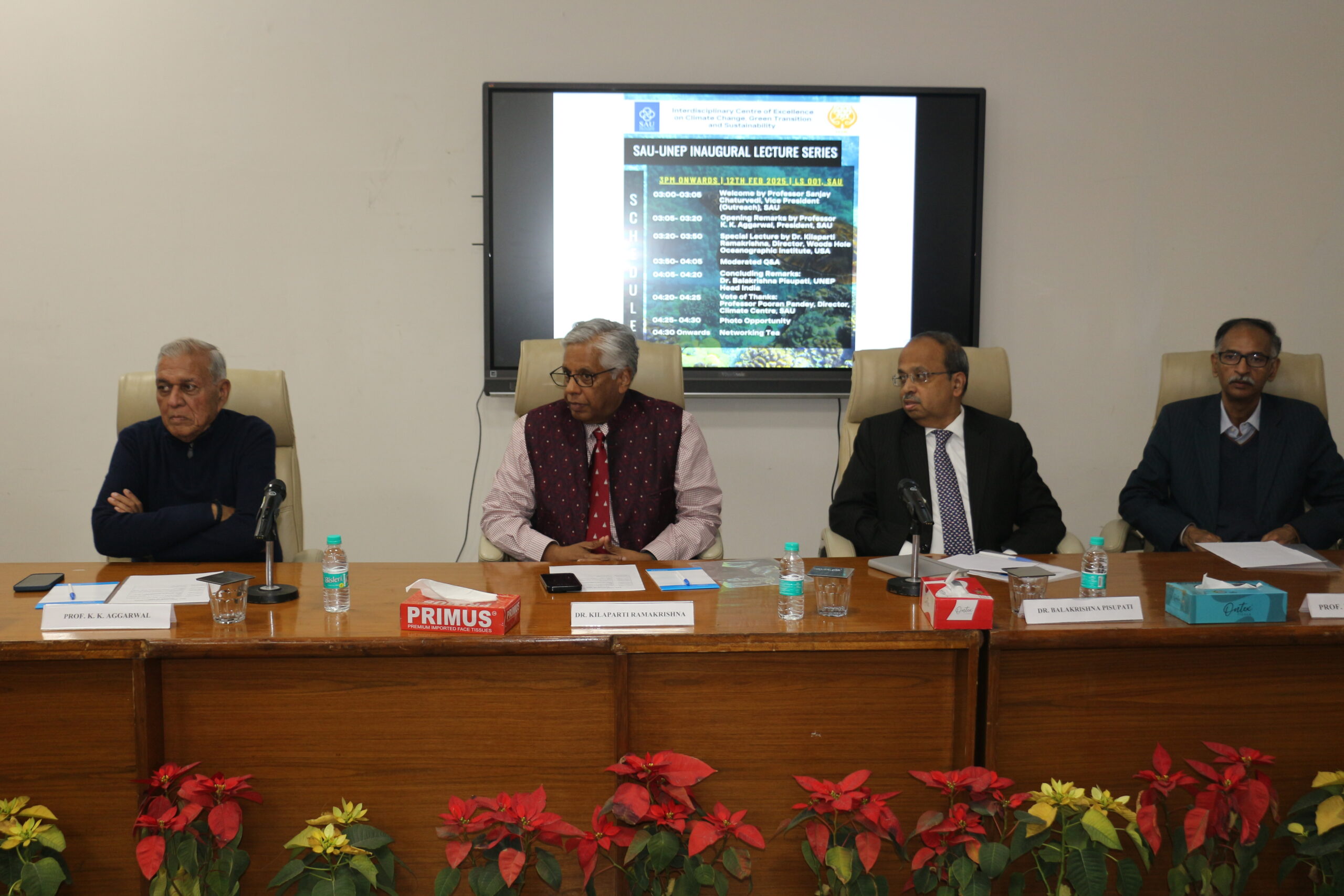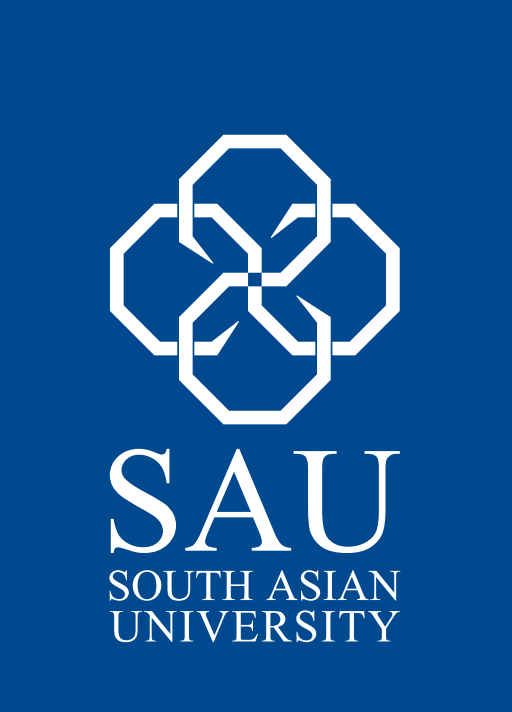
- This event has passed.
The SAU-UNEP Inaugural Lecture Series took place on February 12, 2025
February 13, 2025

The session began with a welcome address by Professor Ritu Gaur, SAU, followed by opening remarks from Professor K.K. Aggarwal, President of SAU. Dr. Ramakrishna then delivered the keynote lecture, outlining key challenges and opportunities in Climate Governance and Diplomacy. His lecture was followed by a Q&A segment where the audience engaged with the speakers, providing additional insights. The session concluded with remarks from Dr. Balakrishna Pisupati, UNEP Head India and Professor Pooran Pandey delivered the vote of thanks before the event ended with tea and informal discussions.Dr. Kilaparti Ramakrishna is a leading expert in ocean and climate policy, serving as Senior Advisor at the Woods Hole Oceanographic Institution. Previously, he was Head of Strategic Planning at the Green Climate Fund and held senior positions at UNEP, including Principal Policy Advisor to the Executive Director. He contributed to drafting the UN Framework Convention on Climate Change and the Kyoto Protocol, bringing extensive experience in environmental law, climate finance, and sustainable development.
Key Takeaways
The keynote presentation traced how climate governance evolved from a scientific issue to a complex international policy challenge. Notably, developing nations, particularly from South Asia, played a key role in shaping core principles like differential responsibility and loss and damage mechanisms, underscoring the region’s capacity to drive international policy change. India’s journey from policy advocacy to leadership through the International Solar Alliance and G20 achievements further demonstrates how developing nations can actively shape global policy rather than remain passive recipients. However, the presentation highlighted an important concern: despite significant diplomatic and policy progress, atmospheric CO2 levels continue to rise, pointing to the need for innovative solutions including marine CO2 removal. In this context, regional institutions such as SAU can contribute to research and policy development to support these efforts.
The discussion phase revealed key insights about implementation challenges. These emphasized the necessity of regional cooperation over individual national efforts, the effectiveness of framing climate change through the lens of pollution to improve public understanding, and the ongoing difficulties in accessing existing financial mechanisms due to institutional barriers. These insights are particularly pertinent for South Asia, where fostering collaborative approaches can help overcome these challenges; academic institutions like SAU can play a supportive role in promoting coordinated regional action.
The concluding remarks addressed a core challenge in environmental governance: the gap between the pace of scientific progress and policy development. While policies are created globally, their success depends on local implementation, highlighting the crucial role of ground-level action in addressing climate change.


